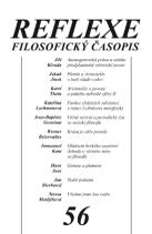Problems with Authenticity (II)
In his opus magnum, Being and Time, Heidegger analyses the structure of human understanding and shows that it has a circular hermeneutical structure. However, he does not succeed in applying this important achievment consequently enough when analysing the phenomenon of conscience. The reason for this failure can be found in his concept of authenticity as the self-identity of Dasein in the moment of the forerunning resoluteness and in his deprecative conception of things. The traditional counterposition of subject and object can still be felt here, although it has been explicitly refused by Heidegger. We think it is necessary to sharpen Heidegger’s concept of circumstanding (Bewandtnis) and to interprete things as a language sediment of the hermeneutical understanding of our finite, human possibilities. A consequent application of the hermeneutical concept of understanding also to the case of the analysis of the conscience should make it possible to soften Heidegger’s concept of the momentaneous authenticity of self-identity and to adopt a formulation of the authenticity which would not so much stress the return from the falling prey in „the they“ and from the entanglement in the world cared for, but which would be understood such that whatever I have done, I can imagine having been able to do something else. The deepening of the hermeneutical analysis of the understanding of the voice of the conscience makes it possible to remove the impression that arises when reading Heidegger’s text as if the authentic possibilities are taken from the being-towards-death. This deepening also makes it possible to refuse such Heideggerean constructs as the notions of the fate of Dasein or the destiny of the nation, which led him in the end, as we see it, also astray in the realm of politics.
